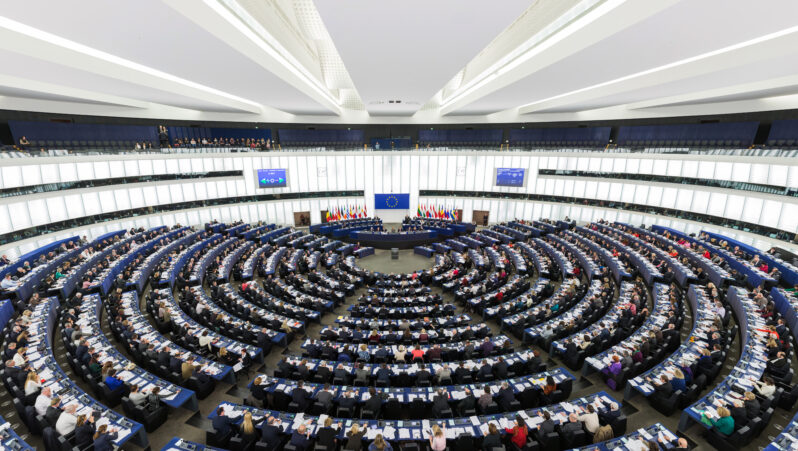Last week the European Parliament paved the way for the commercialisation of human embryos and foetuses when, by an overwhelming majority, it passed a regulation called “Substance of Human Origin”. A ‘substance of human origin’ can mean human blood cells or tissue, but in the eyes of the report, the term includes embryos and foetuses which are, of course, not mere ‘substances of human origin’, but actual human beings.
Moreover, the proposed regulation approves the destruction of embryos with genetic anomalies, such as Down Syndrome. All in all, the proposal, which now goes before the European Council, is a terrible piece of work that thoroughly disrespects human life at its earliest stages. The regulation was better before it reached the amendment stage.
The purpose of the “Substance of Human Origin” (SoHO) regulation is to impose standards for the use of human organic material, but as we can see, it makes no proper distinction between human plasma, cells and tissue on the one hand, and human beings themselves on the other, in this case embryos and foetuses. They are all regarded as products for scientific and medical use with an embryo put on the same moral plane as a blood cell.
If the proposal becomes law, it will allow human embryos created in laboratories specifically for research purposes, or ‘spare’ embryos left over by the IVF process, to be used for commercial scientific research. In other words, they will be for sale. It might even include naturally conceived unborn children.
The Catholic bishops’ office in Brussels (COMECE) has expressed concern that the regulation will further undermine the protection of unborn life in EU Member States, which is already very weak in most cases.
The SoHO regulation also raises concerns about the further use of genetic selection and eugenics because it says that clinics should “achieve a high level of assurance that genetic conditions are not transmitted to recipients or offspring from medical assisted reproduction” (art. 58).
COMECE question how this would be possible without testing embryos or foetuses for such conditions as Down Syndrome and then destroying them.
“Does the European Parliament want to promote eugenics?”, asked Vincenzo Bassi, the president of the European Federation of Catholic Family Associations.
The COMECE document highlights the indivisibility of human life, emphasising that an embryo is a human being continually developing without qualitative breaks. “Already with the fusion of the nucleus, an individual human being with own unique DNA comes into being”, it says.
The draft regulation reduces embryos to “mere raw materials without human quality”, potentially compromising their consideration in ethical and legal assessments.
The value and dignity of human life remains unchanged, regardless of whether it is created within a laboratory, through medical intervention or naturally. Human life has inherent value and needs protection, especially in contexts involving research and pharmaceutical production.
The COMECE document emphasises the need to respect the ethical decisions of EU Member States regarding the use or restriction of certain types of ‘substances of human origin’. Additionally, it advocates for Member States’ rights to refuse recognition of authorisations granted by other Member States when they conflict with national regulations.
The SoHO regulation was sold as an advance for medical science, and if it had not effectively classified human embryos as a mere ‘substance of human origin’, we could welcome it as such. But given that it has done the opposite, it must instead be strongly opposed.
The Irish Government, when the regulation goes to the EU Council, could always propose amendments that would ban the commercialisation of human embryos, but given how our Government has reduced unborn human beings to total moral nullities, this seems a vain hope.
Perhaps other Governments will step up to the mark and insist on the necessary changes.

















